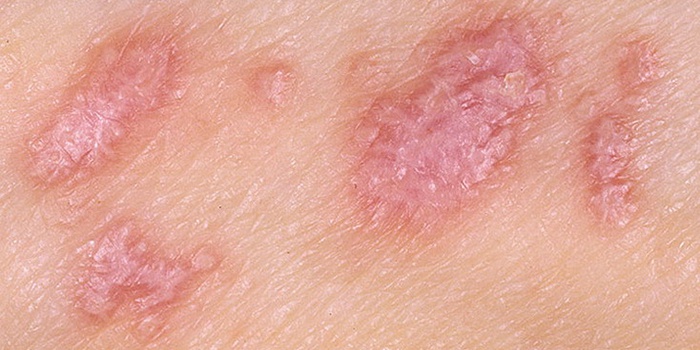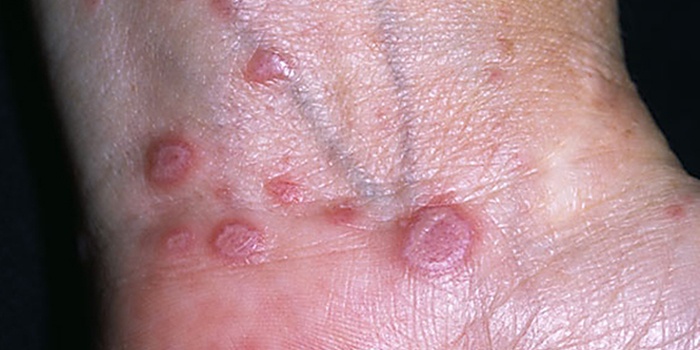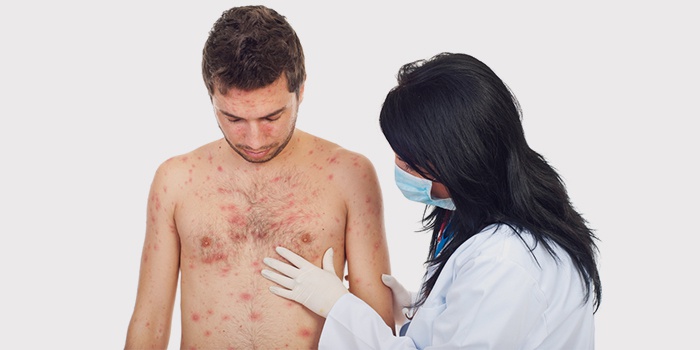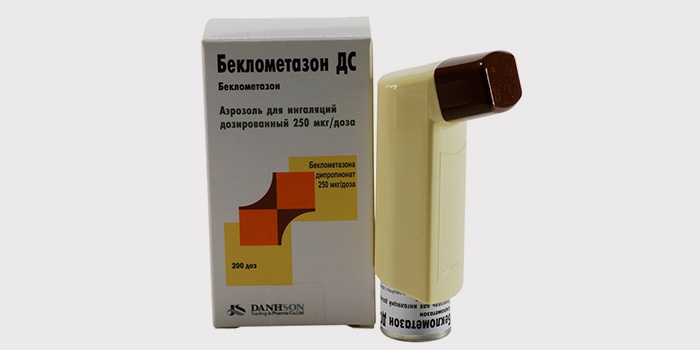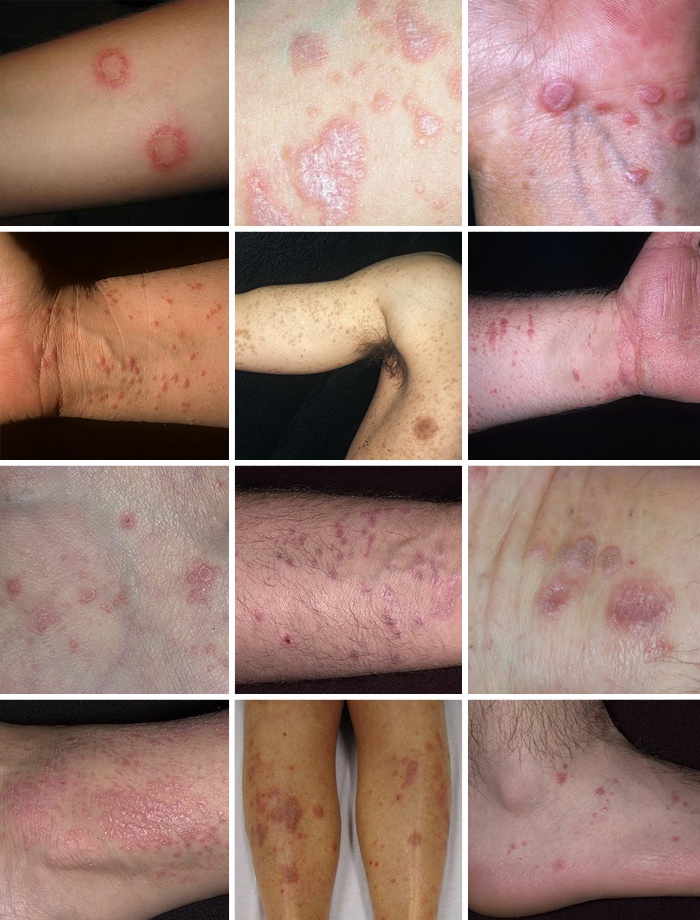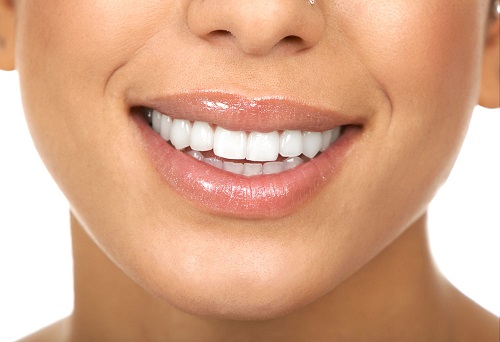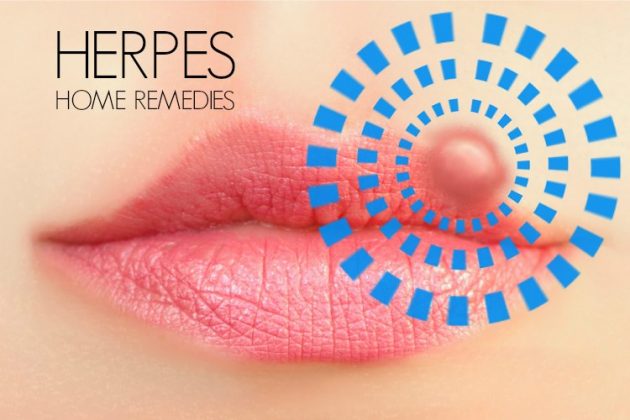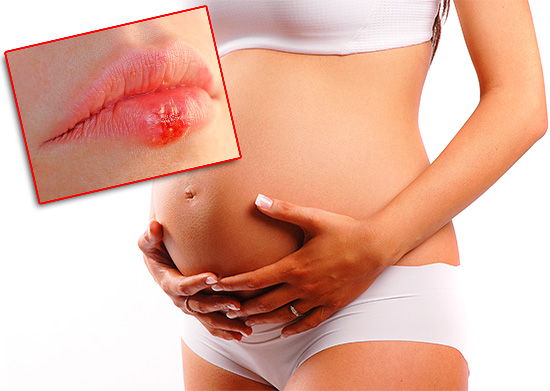Content
- The causes of the disease
- Forms of red lichen and their symptoms
- Diagnosis of the disease
- Localization of lesions
- How to treat lichen planus
One common skin infectious disease is lichen, which affects one or more areas of the skin. There are different types of this disease. Lichen planus in humans is a chronic inflammatory process. It is characterized by rashes on the oral mucosa and on the skin. It accounts for up to 2.5% of cases of deprivation among dermatological diseases and 10% for cases of damage to the oral cavity. Outwardly, it looks like small shiny, pinkish-red nodules of a polygonal shape, in the center of which there is a hollow.
The causes of the disease
The main cause of the onset and development of the disease are considered violations by the human body. We are talking about metabolism and the regulation of immune processes, due to the failure of which an inadequate reaction of tissue cells to external stimuli is manifested. The risk of lichen planus increases both under the influence of specific environmental factors and the characteristics of the patient’s body.
There are described family cases of the disease, which indicates a certain genetic predisposition transmitted from parent to child. It is based on an autosomal dominant type of inheritance: a pathological gene received from a parent does not make children carriers, but increases the risk of lichen planus. The concept of the onset of this disease at this stage involves a combination of several groups of factors:
- endogenous factors: immunity problems, neurological disorders;
- genetic predisposition;
- exogenous factors: viruses, toxic-allergic conditions.
In case of neurological disorders, rashes occur under the influence of strong emotional experiences, neuro-reflex therapy, suggestion under hypnosis. This indicates the significance of these conditions in the development of the disease. If a patient develops lichen planus in the oral cavity, allergic factors and metabolic problems come to the fore.
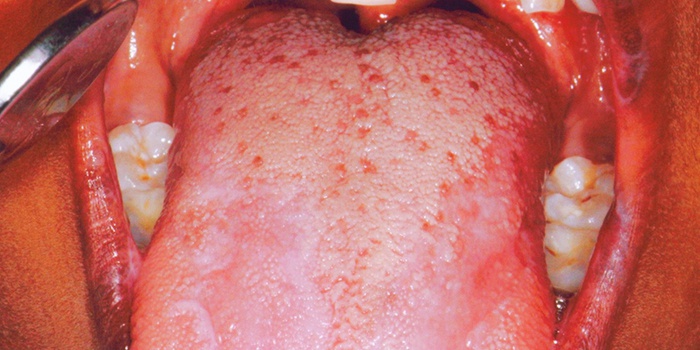
Damage to the oral mucosa is not rarely accompanied by diseases of the intestines and stomach: in such patients, concomitant colitis and gastritis are detected. Pathology of the pancreas or liver also provokes the development of the disease. Doctors note that mechanical damage to the mucous membrane can precede the appearance of lichen planus in a person in the oral cavity. Pathologies from the teeth also play an important role.
Modern chemical compounds used in industry or everyday life have an effect on the development of the disease. This happens due to the simplest allergic mechanisms that provoke the appearance of foci of damage. Cases have become more frequent when antibiotics and other drugs began to act as allergens. This gives reason to talk about the appearance of lichen planus as an allergic reaction to chemical compounds.
Forms of red lichen and their symptoms
Having dealt with what lichen is, it is worth paying attention to its different forms. When combined with concomitant diseases, this pathology can be atypical. Moreover, in contrast to a typical lichen planus, the absence of obvious manifestations is possible. In this case, the diagnosis may be difficult. Doctors currently distinguish the following main forms of lichen:
- Warty. It appears in the form of warty growths on the skin. Plaques have a brownish or purple color, their surface is covered with small warts with a thickened horny layer of the skin. Typical small nodules of red lichen may be present next to them..
- Bubble A rare manifestation of this type of lichen. The lesions look like small bubbles filled with a colorless liquid (occasionally with blood). They appear both against the background of plaques or nodules, and without preliminary manifestations.
- Spiky. Along with typical lesions, rashes are observed that have the appearance of a cone, and at the apex there is a small spike. This option occurs with damage to the hair follicles..
- Ring-shaped. When the size of the foci increases rapidly, and the central part is already starting to heal, it turns out visually like a ring. After healing, the center of the skin remains different in color. This form of lichen planus may resemble not only the ring, but also garlands, half rings, and arcs. More often this type is manifested in men in the inguinal region. Outwardly, he is confused with syphilitic rashes, which leads to an incorrect diagnosis and therapy.
- Erosive and ulcerative. It affects the mucous membranes and is most difficult to treat. It occurs on the lips, in the oral cavity and can turn into ulcers. The lesions are covered with plaque or film. If they are removed, then bleeding occurs. Ulcers are few, small in size, do not cause subjective sensations in the patient. During therapy, the foci disappear without a trace, but after the cessation of treatment, the disease can re-develop in the same place.
- Atrophic. At the first stage, it does not differ from the typical form of red lichen, but keratinized skin remains in place of the plaques when healing. More often develops in places of limb bending. In the hair areas of the body, this form causes point baldness.
- Sclerosing. With the growth of plaques or papules, sclerotic changes occur. In this form, lichen planus can cause atrophic alopecia in areas with hairline. Extremely rare.
Diagnosis of the disease
With a typical course of the disease, a dermatologist will not have problems with making a diagnosis. External manifestations of red lichen can only be confused with syphilitic rashes, but during analyzes and a detailed examination, there will be no difficulties in determining the cause of the outbreaks. As the main signs when making a diagnosis, doctors take into account the following manifestations:
- color of lesions;
- their irregular shape;
- in the center of plaques and nodules a small depression;
- Wickham symptom (the surface of the papules has a fine mesh);
- there is no hemorrhage on the affected skin.
These signs are enough to distinguish lichen planus from psoriasis or syphilis, even without analysis. This process is complicated if the rashes are on the mucous membrane, in which case lichen can be confused with lupus erythematosus, leukoplakia or syphilis. Diagnosis is by exclusion of these diseases in a laboratory test. Red lichen itself does not produce specific changes in urine or blood. A detailed survey of the patient can help the doctor, which will identify factors contributing to the development of pathology.
Localization of lesions
The disease has characteristic areas of localization of lesions. Lichen planus appears in humans in the oral cavity, on the elbow bends, on the genitals (on the head of the penis or labia), under the armpits, on the lower back, thighs, abdomen, legs, and nails. Rashes are accompanied in most cases by an itch. If the disease progresses, new plaques appear on any scratches, bruises, cracks and other damage to the skin.
How to treat lichen planus
This type of disease refers to chronic, but benign (sometimes asymptomatic), which sometimes do not require systemic treatment. In the case of its atypical manifestation and chronicity of the disease, successful treatment depends on an integrated approach. Lichen planus requires the appointment of an individual course of therapy using modern methods and tools. From what factors provoked the development of lesions depends on how to treat lichen in humans.
Symptomatic treatment
Due to the fact that the essence of lichen planus is not clear to the end, more often it comes down to symptomatic treatment. It is designed to eliminate individual manifestations of the disease and help cope with itching. For example, in case of damage to the oral cavity, oral antiseptics, corticosteroids (Beclomethasone, Triamcinolone, Betamethasone, Prednisol) and Azathioprine are prescribed. After the appointment of a course, you can treat lichen planus at home.
Complex therapy
In order to cure the disease completely, in addition to symptomatic treatment, it is necessary to find out and exclude the causes, factors that influenced its appearance, regularly carry out procedures to strengthen the immune system, improve the psychological state. All these are parts of complex therapy, which is designed not only to save you from the manifestation of red lichen, but also to help avoid its re-occurrence. Such treatment is prescribed individually by the doctor after a detailed survey and examination of the patient.
Effective folk remedies
- Tar. Take 2 eggs, birch tar 150 g, fresh homemade cream 100 g, mix and rub into the affected area until the external manifestations disappear. Pre-wipe the foci of inflammation with hydrogen peroxide.
- Vinegar. On affected areas 5-6 times a day, make a compress of undiluted apple cider vinegar for 10 minutes. Use until red lichen passes.
- Calendula. Take 10 g of calendula inflorescences and chop them, grind in 50 g of petroleum jelly. Lubricate the affected areas of the skin with ointment several times a day until the lichen disappears.
Disease prevention
Due to the lack of a clear and unambiguous reason for the development of lichen planus, there is no one effective method for preventing this disease. Doctors recommend approaching this issue in an integrated manner, protecting oneself from strong emotional experiences, harmful chemicals, and strengthening immunity. In cases with damage to the oral cavity, it is necessary to eliminate all problems with teeth and gums in a timely manner..
signs of lichen planus
Red lichen is a very common infectious disease among people of any age, accompanied by skin rashes and constant itching. Some people are embarrassed to consult a doctor and expect that the problem will go away on its own, and this is fundamentally not true. If lesions occur, you should immediately consult a dermatologist. But not everyone understands that they showed lichen planus.
What does lichen planus look like in people – photo
There are different types of lichen, which differ in color, shape, area of damage on the skin or mucous membrane. The disease is accompanied by a change in the pigmentation of the skin, peeling and itching. All this applies to the girdle, pink, red, color, ringworm of this disease. Below are pictures of lichen planus.






